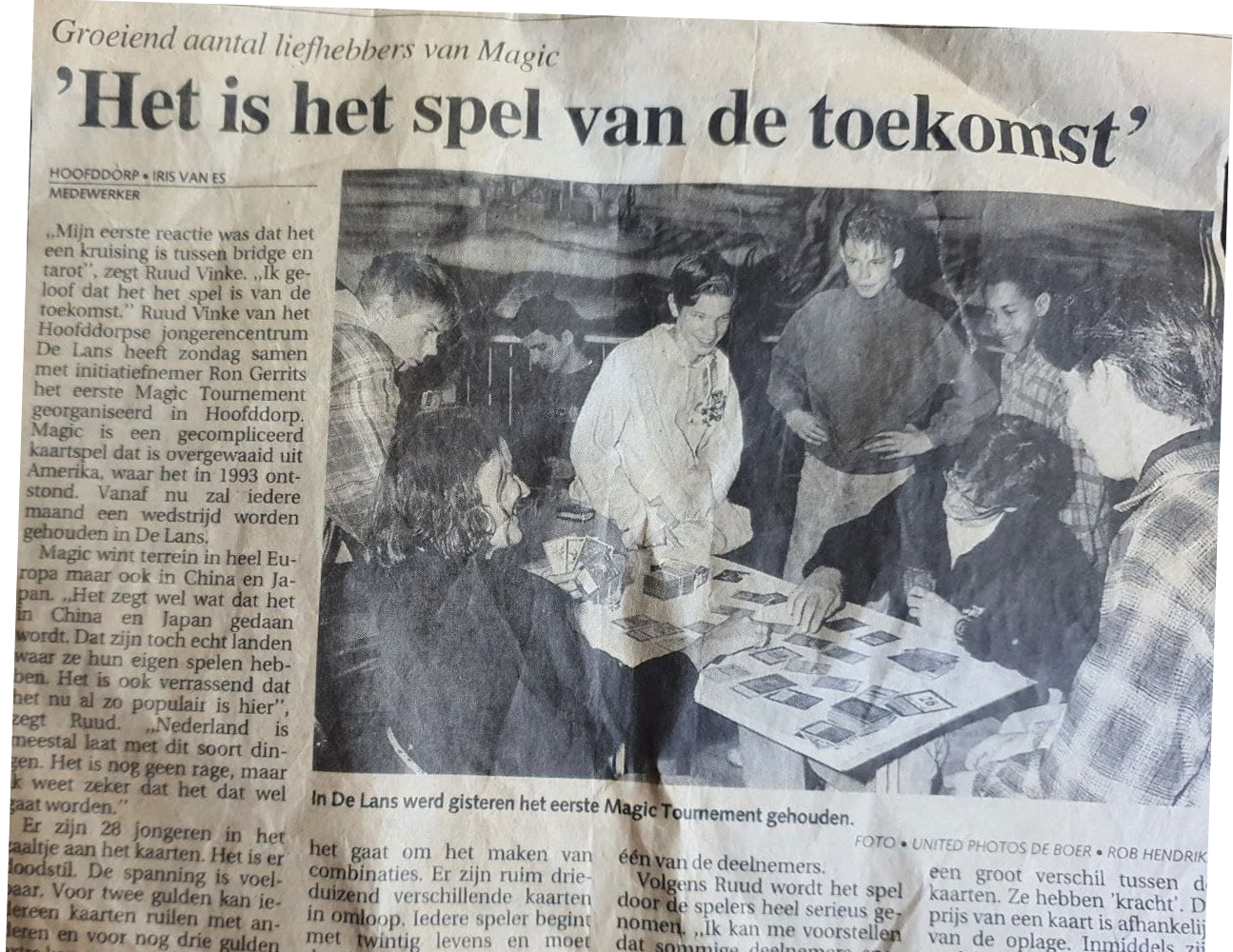LTO, NFTs, and the Metaverse
I had just turned 15 when a new game swept the world. It was Magic: The Gathering. My friends and I enjoyed everything about that game; playing, building decks, trading cards, and buying packs in hopes of finding a rare Shivan Dragon or Birds of Paradise card.
We would play Magic everywhere whether it was during recess or after school. At one point, my friend's enthusiastic father organized a local tournament for us at our local community center.

We bought official cards at a local shop and that was all we needed. We could organize, play, and trade by ourselves.
Now 25 years later and we see this concept moved into video games. You purchase loot boxes, upgrades, and collect skins. But two things have changed; first of all, you rely on the game issuer to provide an environment to play the game. Second, the focus is more on buying than on trading.
NFTs = Trading
The rise in popularity of NFTs show that people are not only interested in collecting digital assets—they also want to trade, sometimes for fun and sometimes for profit. Developers should take a step back and simply issue digital assets, allowing people play and trade among themselves.
The current generation of NFTs work by putting a proof of ownership on the blockchain. But the actual assets are still on the developer's server, giving them a central role. While NFTs are a step in the right direction, the concept is still relatively centralized.
LTO Network is working on a new generation of NFTs. These NFTs are more similar to owning a pair of shoes, a watch, or a sword in real life. With NFT2.0 everything is bundled into a package that sits in a wallet on your phone or laptop; credentials, a smart contract, an event chain, images and other data. The blockchain is only used for consensus, preventing double spending.
Why does this matter?
Into the Metaverse
The metaverse is the latest trending topic amongst big tech corps and crypto enthusiasts alike. The metaverse is more than just a virtual reality game; it's a universe where you live, eat, and dream.
The key difference between the metaverse and just a game is your identity in this digital space. No longer are you just a user of a platform. You have a digital identity that is just as much a part of you as any other identifying trades that make you a unique individual.
Using your digital identity, you'll be able to interact with others, visit places, and buy and own property, in both the virtual and real worlds.
We're at the dawn of this technology, but we already need to be vigilant when it comes to privacy and control. To what extent do we trust big tech corporations like Facebook to be the gatekeeper of the multiverse and to act in the best interests of the users roaming their platform?

The alternative is an open multiverse where there is no central control and individuals can interact with each other without an all-seeing eye.
To make this happen, we need an ecosystem that puts you, as an individual, in control. This means that you would interact directly with the virtual space - for instance, to prove that an asset you're holding is genuine - instead of platforms communicating with each other through an API with you as the subject.
Back to Reality
The push for decentralized control is not limited to the virtual world, but it is becoming more relevant in our digital lives in general. More and more we are becoming a subject, reduced to a row in the database of some corporation or government body.
But we're seeing a push back to regain control with technologies like DIDs and verifiable credentials.
Regardless of whether it's a digital sword in the metaverse, a high school diploma, or a Magic: The Gathering card, we must be weary of surrendering control to a handful of central entities. Instead we must demand something tangible that is fully under our control.
